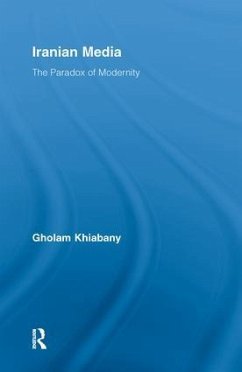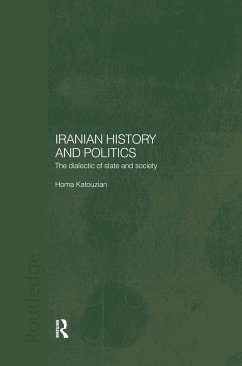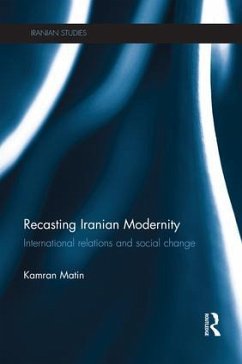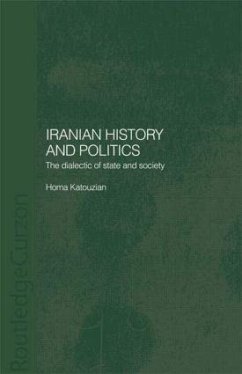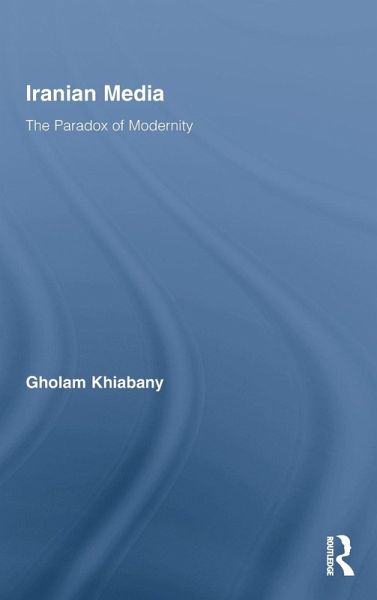
Iranian Media
The Paradox of Modernity
Versandkostenfrei!
Versandfertig in 1-2 Wochen
176,99 €
inkl. MwSt.
Weitere Ausgaben:

PAYBACK Punkte
88 °P sammeln!
Offers an overview of the expansion of the Iranian communication system, examining the political economy of this process and arguing that the nature of Iranian media in general and the press in particular, cannot be understood simply in terms of 'Islamic ideology' or the false dichotomy of 'modernity' versus 'tradition'.
The post-revolutionary state in Iran has tried to amalgamate 'Sharia with electricity' and modernity with what it considers as 'Islam'. While sympathetic to private capital, through quasi anti-capitalist politics, the state began to restrict market-relations, confiscate major assets of sections of the Iranian bourgeoisie, and nationalize major aspects of Iran's industry, including its communications system. Since the end of war with Iraq and the start of the process of 'reconstruction', market-driven development and economic policies have been key aims of the state.




